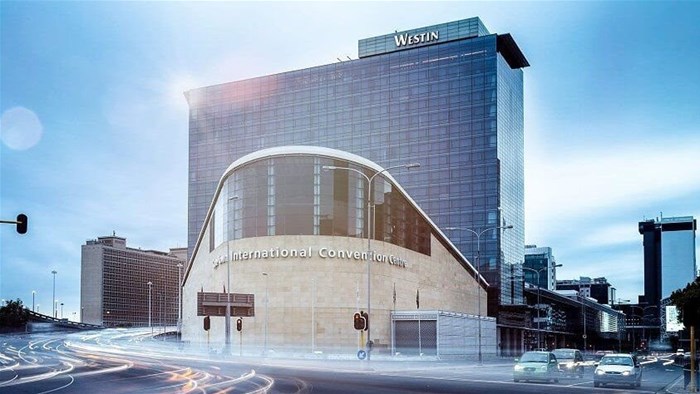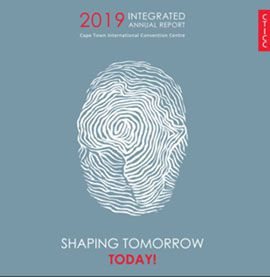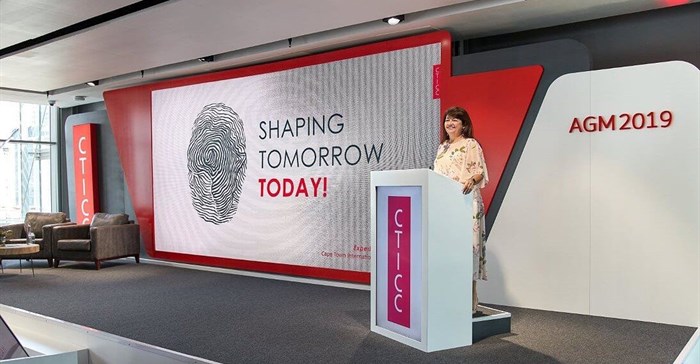
Top stories






More news















As outlined in its Economic Impact Report, the CTICC has generated more than 130,465 jobs since its inception in 2003. Despite an economy that is shedding jobs, assembled shareholders heard that CTICC created or sustained 14,620 jobs in the past financial year alone. It is estimated that the CTICC’s contributed R1.2bn to indirect household income in South Africa during the 2018/9 financial reporting year.
Despite the tough economic trading environment, revenues have grown by more than 30% from R172m in 2013/14 to R277m during the last financial year. The centre achieved an operating profit (EBITDA) of R57.5m in the year under review, which was R49.57m above the target of R8m, representing a 69% increase from the R35.4m achieved in 2013/14.
The convention centre was able to increase its revenue through the 417,070 delegates, which amounted to 877,129 delegate and visitor days, hosted over the 560 events.
The delegates drawn to the CTICC make a significant contribution to the tourism industry of Cape Town, the Western Cape and South Africa as a whole. It is estimated that an additional 566 057 room nights were generated in the Western Cape and 575, 898 in South Africa by the CTICC’s events in 2018/19. While total foreign exchange spend as a result of the tourism generated by these events is estimated at R677m.
Effectively the CTICC contributed a total of R4.5bn to the Western Cape Gross Geographical Product (GGP) and R6.5bn to South Africa’s Gross Domestic Product (GDP). To date, the centre has made a cumulative contribution to the Western Cape’s GGP of R39.6bn and R47.3bn to South Africa’s GDP.
In addition, the centre procured R331m worth of goods and services from local Western Cape suppliers, this equates to 87% of our overall nett spend. In respect to B-BBEE suppliers, R328m was spent, which was 86% of the centre’s nett spend. While 39% of the total procurement spend was with women-owned enterprises.

The CTICC is committed to a triple bottom line approach, focusing as strongly on its environmental and social impact as on profit margins. This ensures all areas of the business interconnect to create a conscientious and sustainable business that cares about its communities and the environment.
This year, the CTICC invested R1.6m in corporate social responsibility (CSR) initiatives, including activations and venue sponsorships. Staff at the centre support the CTICC’s local community partners through various activations by donating their time and resources. Through these initiatives, the centre aims to empower disadvantaged communities and provide much-needed support to vulnerable citizens and children.
Globally, consumers and event organisers are demanding that companies follow sustainable business practices and processes, and due to the centre’s focus on waste management, energy consumption, local sourcing and water conservation, it is well-placed to respond to such demands.
One of the CTICC’s most significant sustainability initiatives during 2018 was the installation of a reverse osmosis plant, purpose-designed to cater to its daily water consumption requirements. The plant extracts underground seawater, filters and purifies it to produce 200,000 litres of drinking water in a 24-hour cycle. A storage tank with a capacity of 400,000 litres accommodates maximum-demand scenarios. As a result, the centre is able to offer 100% water neutral events.
Other water-saving initiatives during the year under review included the installation of rainwater storage tanks with a capacity of 265,000 litres. This water is used for irrigation of plants and cleaning. About 20,000 litres of water is also captured weekly from the air-conditioning units and used for cleaning purposes.
The centre is dedicated to reducing the carbon footprint of daily operations, and this focus includes our kitchens. The kitchens use water from the reverse osmosis plant, which kills bacteria as well as utilises energy-efficient ovens. Wherever possible, local ingredients are used, with all the centre food and beverage suppliers being within a 50km radius.
The kitchen’s only order what is needed for a particular event, a kind of just-in-time system called event-based ordering. This means that stocks are not held, produce is always fresh, and waste is reduced. In the last year, 86% of all waste was diverted from landfill through recycling and upcycling.
In respect of energy, it was reported that despite the addition of CTICC 2, which doubled the centre’s exhibition capacity, energy consumption only increased by 6.25% in the last year. The CTICC continues to focus on reducing its electrical consumption and as part of a five-year strategy, is looking at investigating in photovoltaic-solar options and water heating by means of heat pumps.
A long list of projects, partnerships and campaigns further reduce the centre’s carbon footprint and enable it to help its clients ‘green’ their events.
The spekboom perfectly illustrates CTICC’s commitment to sustainability with every AGM attendee receiving one. As each spekboom tree can remove 8.5kg of CO2 from the air, this could one day equate to 1.0625 tonnes of carbon removed a year. Spekbooms can live to be 200 years old, are edible and are easy to propagate, so this initiative will really have an impact on the future. The CTICC also supported Greenpop’s tree-planting initiative, by planting a tree at the Platbos Forest, on behalf of each attendee.

"Our core business is to provide a platform for events which in turn facilitates the knowledge economy. This report showcases how our business is making a difference," notes Julie-May, CTICC CEO. "This year's results highlight our contribution to job creation, alongside our increase in revenue, our contributions to GGP and GDP, as well as local procurement. I must add that I am particularly proud of how many women-owned suppliers we work with and how we support our community through corporate social responsibility spend."
"All this was achieved while setting a standard for excellence in conscientious business practices, hospitality and event hosting, both locally and internationally. Our achievements are as a result of hard work and strategic alignment to the Western Cape Province’s trade and investment areas, and the City of Cape Town’s catalytic sectors.
"I have absolutely loved my five years at the CTICC," said Ms Ellingson, who will be leaving the CTICC in the beginning of 2020. "It has been a real privilege to work alongside such a passionate and dedicated team. Together we have done great things, and I know that the team will continue to deliver exceptional events for our clients, make a meaningful contribution to our economy and more importantly, support our communities through job creation and volunteerism."